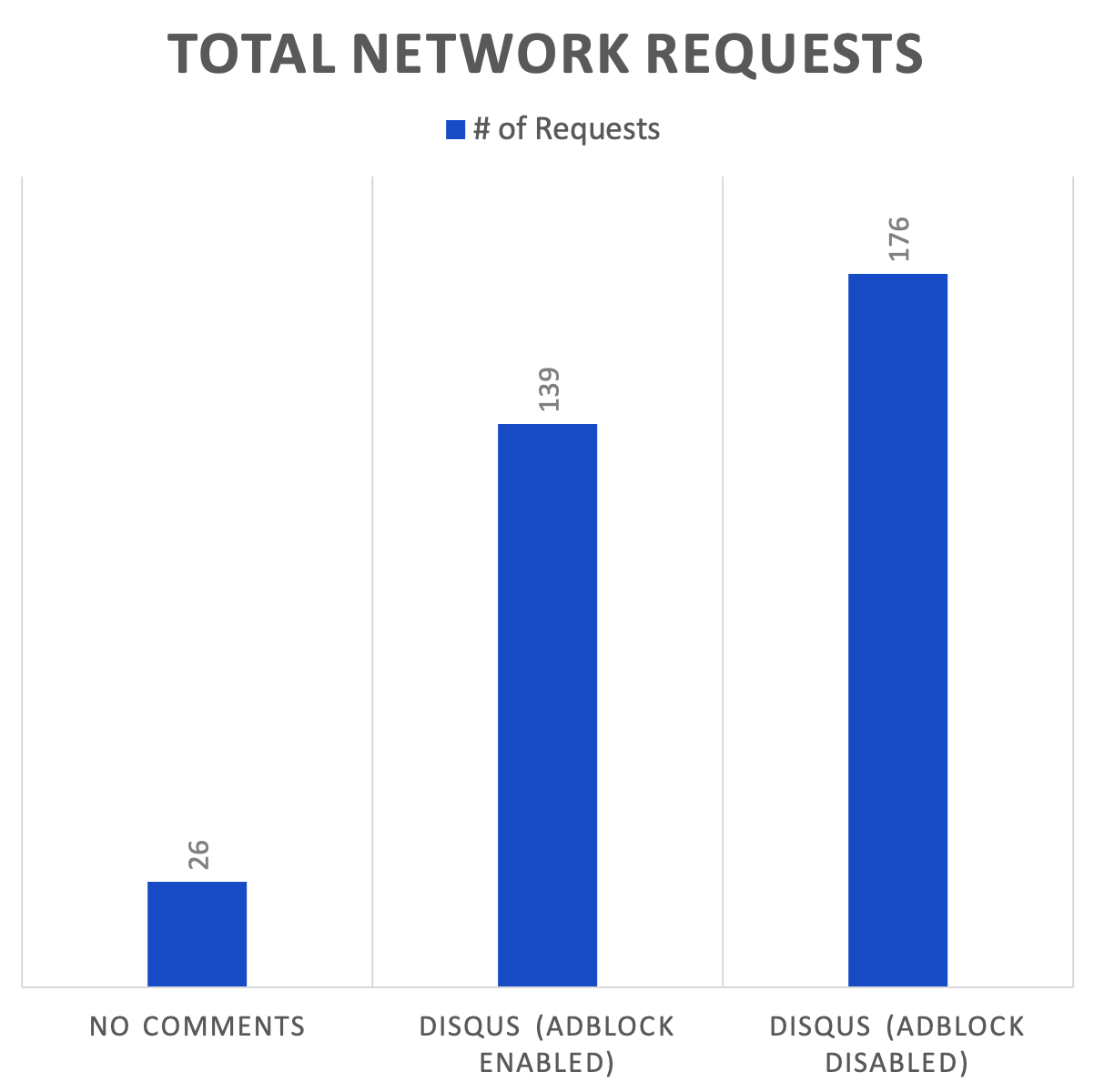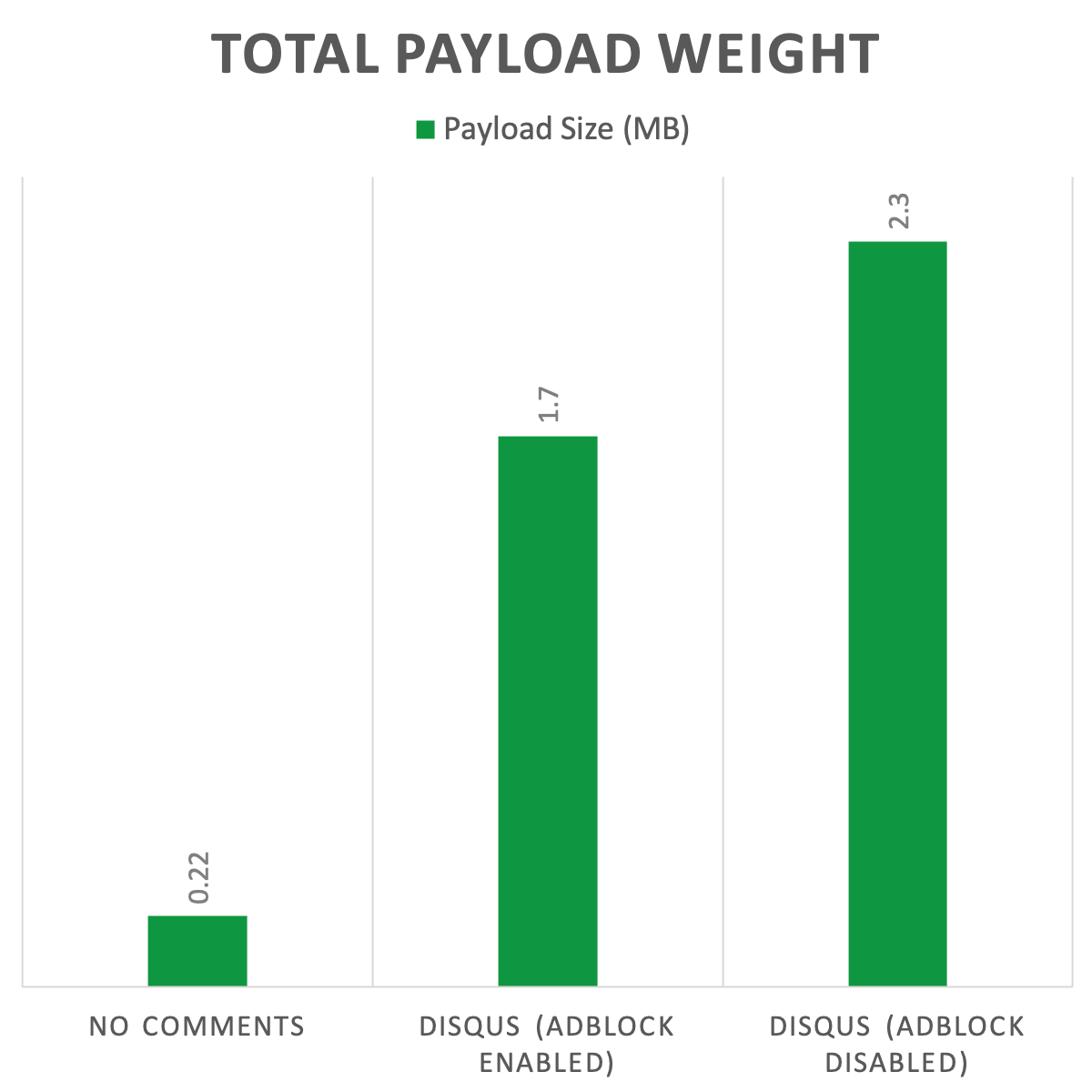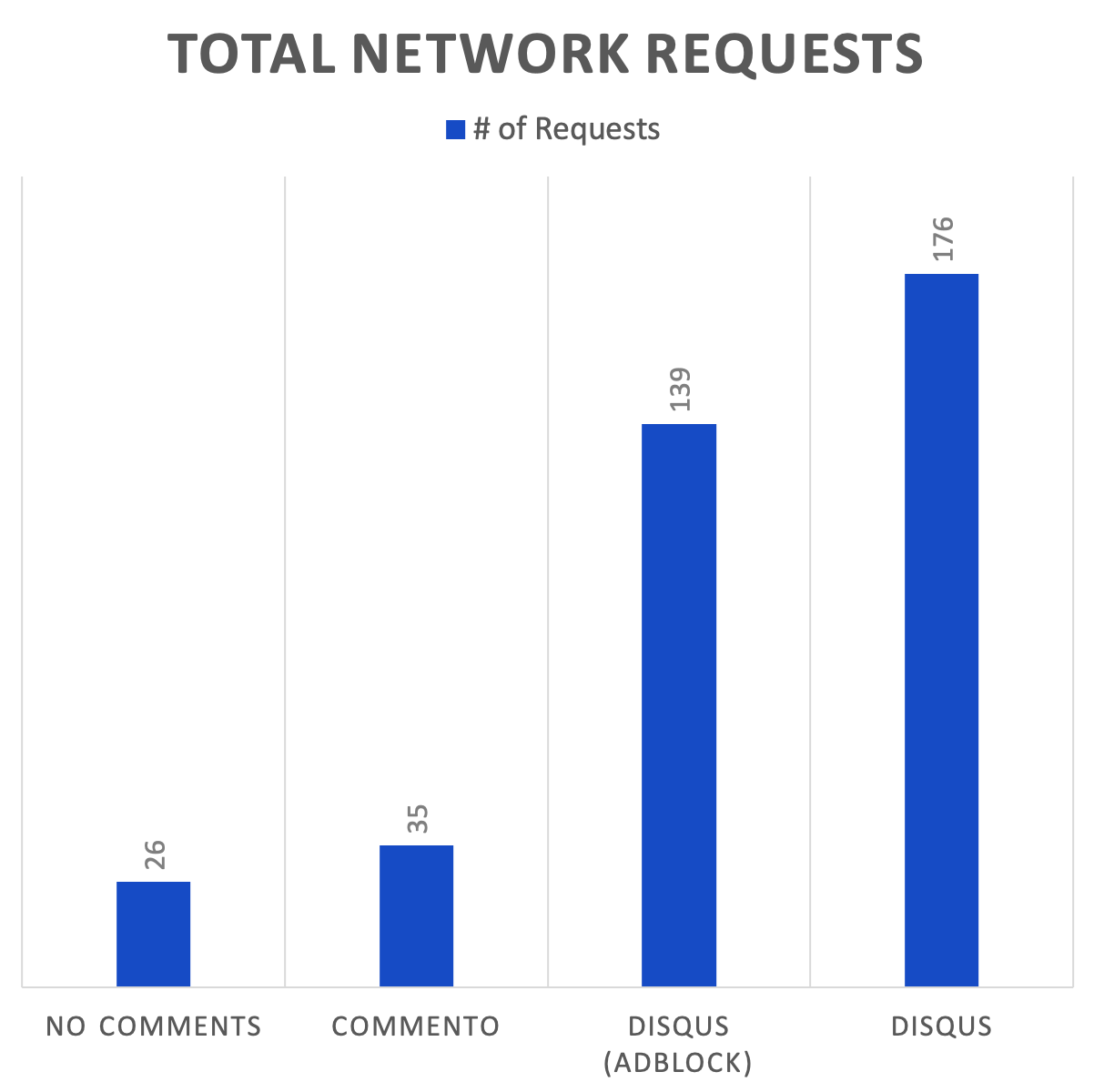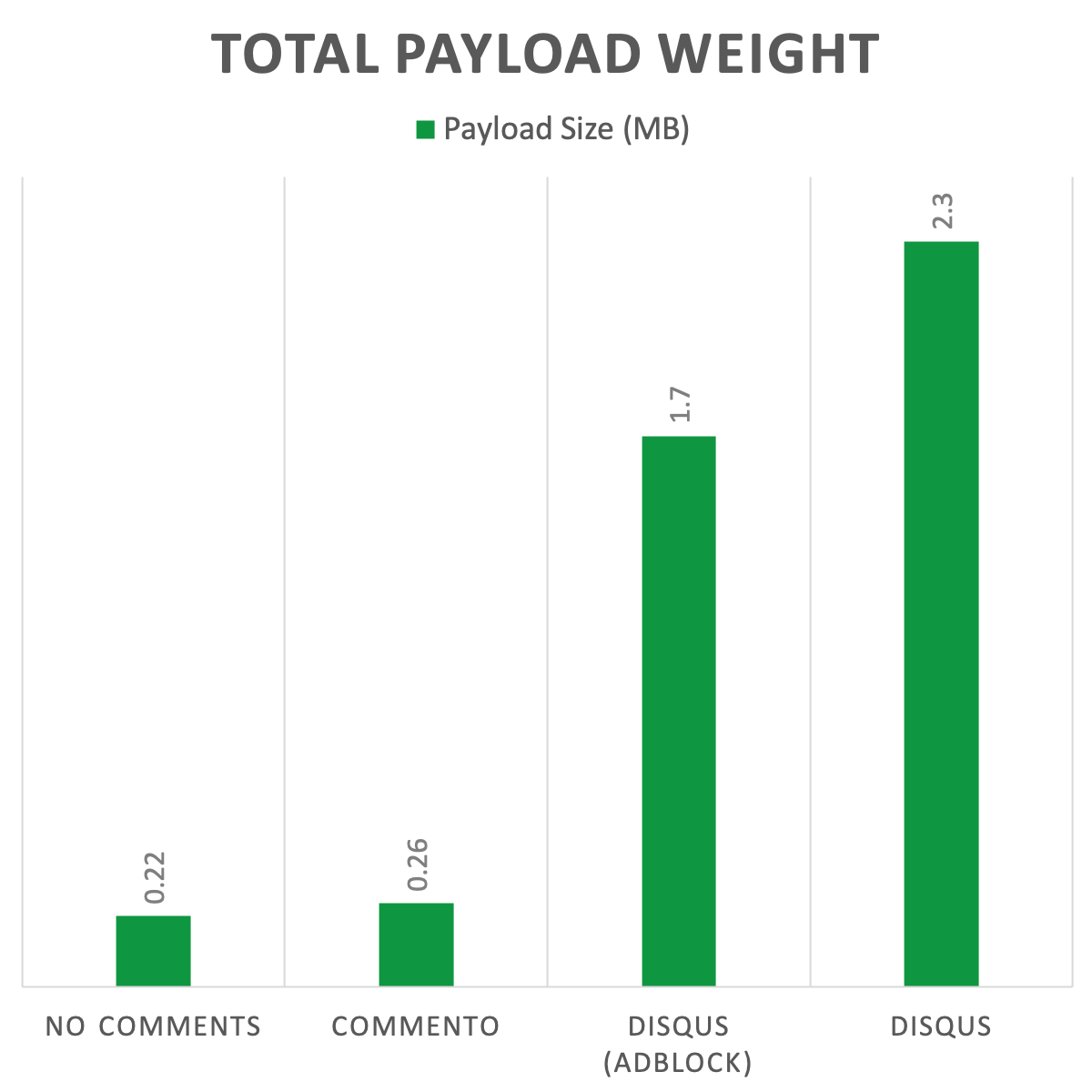Why I Replaced Disqus and You Should Too
How switching from Disqus to Commento reduced my page weight by 90%.
| UPDATED

When I started this blog, I used Disqus for comments on posts. This was a natural choice: I’d seen sites use Disqus all over the internet, it was easy to setup, and they had a free tier. I happily integrated Disqus and moved on.
Here’s the thing: I’ve always known that using Disqus came at the cost of some page bloat. I’ve written about web performance before and generally strive to make my pages fast, but I just assumed having Disqus was worth the bit of extra weight. My logic: If Disqus were really so bloated, everyone would’ve migrated away from them by now. Surely Disqus prioritizes keeping their payload reasonably small, right?
I was wrong. Last week, I finally did what I should’ve done at the beginning: benchmark it myself. Here are my results (benchmarked on my Webpack post):


Adding Disqus increased my page weight by over 10x and my request count by over 6x. That’s ridiculous! I immediately started looking to replace Disqus - web performance is important.
An Alternative: Commento
Disclaimer: I am not being compensated for this post, nor am I affiliated with Commento in anyway. I’m simply a satisfied customer.
A while back, I saw a Hacker News post about a fast, privacy-focused alternative to Disqus called Commento. Having learned my lesson, I benchmarked Commento before committing to it:


What a difference. Commento is orders of magnitude lighter than Disqus.
It gets even better. Here are more reasons I was sold on Commento:
- It’s open source and can be self-hosted.
- It’s privacy focused - it doesn’t sell user data and tries to collect as little as possible. This is especially nice given that my blog’s audience is probably more privacy-conscious than the average internet user.
- You can pay what you want. Disqus’s free tier is ad-supported, and its cheapest paid tier is $9/month. Commento is actually cheaper (if you want it to be)!
- It’s configurable. If you scroll down to the comments of this post, you’ll see that the styling of the Commento integration matches the styling of the rest of the site.
- It has an Import from Disqus tool that’s easy to use. I was able to quickly migrate all of my old Disqus comments to Commento.
Commento works great for me, but I’m not trying to say it’s the right solution for everyone - there are several good, lightweight commenting platforms out there.
Are you still using Disqus? Did you know how much bloat it adds to your page? What’s keeping you from switching?


